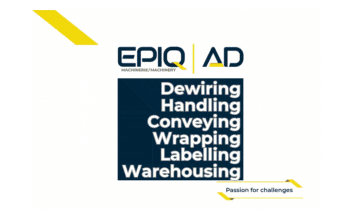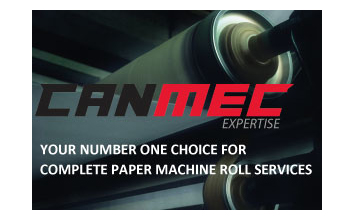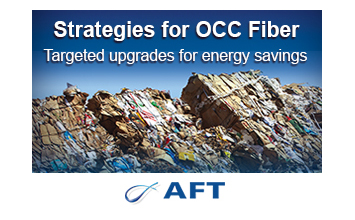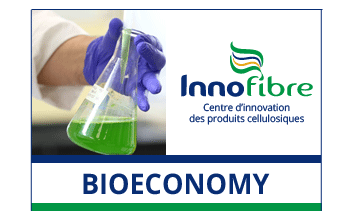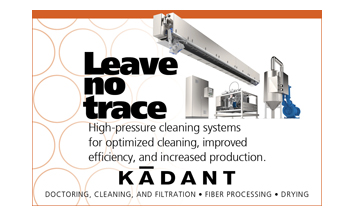Proposed Amendments to the EU’s Packaging and Packaging Waste Regulation Could Have a Negative Impact on the Paper Packaging Sector.
The EU has proposed new amendments to its Packaging and Packaging Waste Regulation (PPWR) that could add 8.1 billion plastic crates to the EU transport sector. One of the proposed amendments is looking to ban certain single-use packaging and introduce requirements for high levels of reusable packaging.
According to an independent peer-reviewed analysis commissioned by FEFCO, mandatory reuse targets applied to all materials would increase the amount of plastic packaging in circulation and establish a plastic monopoly on some market segments. This analysis also considers if this were applied to the transport and e-commerce corrugated cardboard packaging categories. 8.1 billion new plastic crates weighing 12 million tons would be needed to achieve a reuse target of 90% by 2040, and 16 billion liters of water would be needed to wash just about half of them for reuse.
The proposal has created immense opposition from numerous companies as many argue these amendments contradict the aims of the Green Deal, the Circular Economy Action Plan and other ongoing strategies to help curb plastic pollution. Many of the companies speaking out include several pulp and paper businesses such as DS Smith, the Confederation of Paper Industries (CPI), Smurfit Kappa, and many others.
Alex Manisty, Group Head of Strategy & Innovation, DS Smith, stated, “We support the aims of the Green Deal and the new legislation, but amendments that mandate reuse targets for paper and cardboard would compromise the European corrugated cardboard industry, embed a plastic economy into the single market, and hold the EU back on climate change.”
On top of regression regarding the plastic reduction movement, this new legislation would also greatly impact the paper packaging sector – negatively. If reusable packaging were given priority over recyclable packaging, cardboard would be unable to compete with plastic since it was designed to be used once or twice before being recycled.
“Paper-based products, which are both recyclable and reusable, as well as biodegradable, would be penalized with no clear environmental benefit. These proposals contradict the sentiments and direction on the environment,” said Andrew Large, CPI director general.
India Experiences Export Challenges and Declining Demand, Resulting in 20 Paper Mill Shutdowns in Just Six Months
According to Gujarat Paper Mills Association (GPMA), over 20 have shut down in the last six months amid export challenges and excess capacity.
Many paper mills in north India temporarily halted production to resolve the imbalance between supply and demand. The low demand India has been experiencing has been largely due to the global recession and rising inflation.
Prajwal Agarwal, Director, Gangotri Paper Mills stated, “There is a shortage in demand globally, inflation is on the higher side, import orders have decreased and even corrugators are not using full capacities.” He went on to say that there is hope that demand should pick back up in 3Q2023 and these shutdowns will correct the market.
Another major factor at play is the global increase in containerboard supply. Mills in most developed countries have installed recycled paper plants and are offering kraft paper at prices Indian mills can’t match. It’s been reported that Russian and some mills from Malaysia are supplying kraft paper at prices nearly 20% lower than India’s market.
Two years ago, exports from paper mills within Gujarat and Maharashtra were around 150,000 tons per year. Now, it has decreased to around 30,000 tonnes. The paper mills are currently running with 50-60% cut-off production.
Acquisitions and Divestments
- Resolute’s divestment of its Thunder Bay Mill to Atlas Holdings. Resolute Forest Products has entered into an agreement to sell its Thunder Bay pulp and paper mill to an affiliate of Atlas Holdings. Resolute will continue to operate its sawmills and woodlands operations in Northwestern Ontario. At the closing of the transaction, the companies will enter into certain ancillary agreements, including a long-term woodchip and biomass supply agreement pursuant to which Resolute will continue to provide chips and biomass to the Thunder Bay mill. The sale of the mill is necessitated under the consent agreement between Domtar and the Canadian Commissioner of Competition and registered with the Canadian Competition Tribunal in connection with its review of Domtar's recent acquisition of Resolute.
- Sofidel completes acquisition of three brands from Hakle. Sofidel has completed the acquisition from Hakle GmbH of the brands Hakle (toilet tissue segment), Hakle Feucht (moist toilet tissue segment) Dick&Durstig and Servus (kitchen towel segment). The company received clearance from the German Antitrust Authority for the deal. "Thanks to this acquisition, we significantly strengthened our positioning on the German market for toilet tissue and kitchen towels, and also entered a new category, moist toilet tissue," said Philippe Defacqz, Vice President of Marketing & Sales, Sofidel.
- Stora Enso completes divestment of its Hylte Paper Production site and all related assets to Sweden Timber. The transaction value of the deal is €18 million and will result in the reduction of Stora Enso’s newsprint paper capacity by 245,000 TPY. Stora Enso’s formed fiber and biocomposite operations will continue at the site.
Source: ResourceWise






